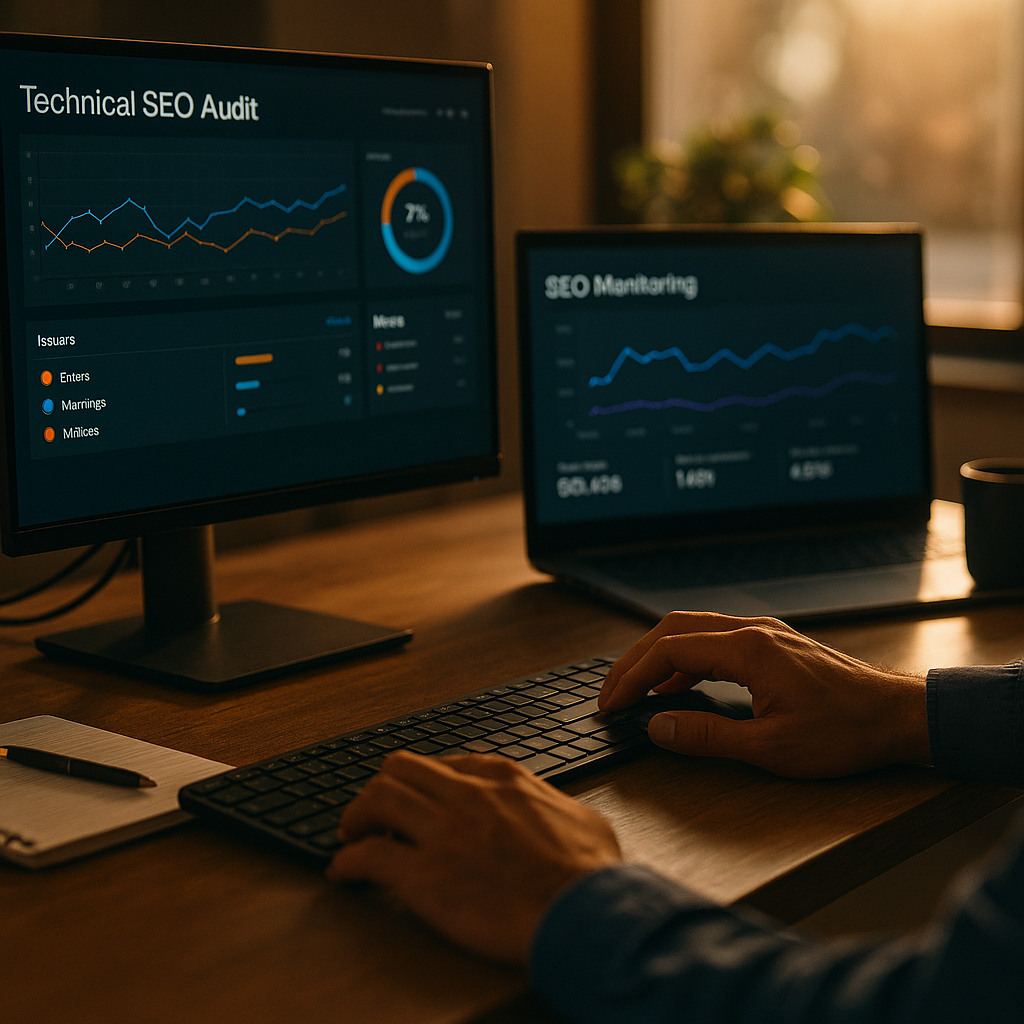Technical site audits and performance monitoring are essential for staying ahead in the dynamic world of search marketing. Using dedicated SEO tools for technical site audits can transform your website’s crawlability, speed, and health. Learn how advanced tools streamline site maintenance and reveal valuable opportunities—read on to discover the secrets top SEO professionals use in 2025.
Understanding the Foundation: What Is a Technical Site Audit?
Before diving into tool choices, it’s crucial to clarify what a technical site audit entails. A technical audit assesses the infrastructure of your website—ensuring search engines can efficiently crawl, index, and interpret your content. Common audit areas include:
- Site architecture: URL structures and internal linking
- Mobile responsiveness: Compatibility and mobile-first indexing
- Page speed: Load times affecting user experience and rankings
- Crawl errors: Broken links, server issues, and redirects
- On-page elements: Meta tags, headers, and schema markup
Proper auditing uncovers hidden roadblocks that hinder performance. By fixing these issues, you create a stable foundation for lasting SEO results.
Comprehensive SEO Audit Tools: Features to Look For
Choosing the right SEO audit tool is not just about checking boxes—it’s about finding solutions that adapt to your workflow. As of 2025, the best technical SEO tools offer:
- Automated crawling: Efficient sitewide scanning with minimal server load
- Detailed reporting: Actionable, prioritized recommendations
- Integration: Data connectivity with analytics and search console tools
- Focus on Core Web Vitals: Insight into real-world user experience metrics
- Custom reporting: White-label options and exportable results
- Continuous monitoring: Alerts and scheduled re-audits for ongoing health
Look for platforms that keep pace with search engine updates, such as enhanced detection of JavaScript rendering issues or AI-driven content analysis. These capabilities help maintain search performance as algorithms evolve.
Performance Monitoring Solutions: Tracking and Improving Site Health
Technical audits are only the beginning; continuous performance monitoring is essential for long-term SEO success. Advanced tools in 2025 such as Sitebulb, Screaming Frog, and SEMrush Site Audit provide the foundation, but success relies on interpreting and acting on the data. Key performance monitoring features include:
- Real-time crawling: Detect changes and issues as soon as they arise
- Error tracking dashboards: Summarize health metrics and flag critical problems
- Competitive benchmarking: Compare your technical health against industry leaders
- Custom alerts: Email or Slack notifications for rapid response
Proactive monitoring empowers site owners to fix issues before they impact rankings or user experience, reinforcing your site’s technical resilience.
Addressing Core Technical SEO Challenges in 2025
Technical SEO in 2025 goes well beyond basics. Modern sites face unique challenges, including complex JavaScript frameworks, dynamic rendering, and increased focus on accessibility. Leading tools have now integrated:
- JavaScript crawling and rendering: Ensure search engines can interpret dynamic content
- Accessibility auditing: Compliance with legal and ethical standards (e.g., WCAG 2.2)
- AI-driven anomaly detection: Identify unusual site changes before search engines penalize mistakes
- Optimizing for voice and visual search: Structured data and schema insights for emerging search trends
By capitalizing on these tool advancements, you safeguard your rankings and improve website equity for all users.
Integrating SEO Audits and Monitoring with Business Workflows
Technical SEO results accelerate when seamlessly integrated with business processes. In 2025, effective teams:
- Automate regular reports to stakeholders with prioritized action points
- Collaborate cross-functionally between SEO, development, and UX teams
- Align technical audit findings with KPIs like lead generation or sales
- Educate non-technical teams using clear, jargon-free reporting features
Modern platforms feature collaborative dashboards and user permission controls, making it easier than ever to keep your team focused on what matters most: business growth driven by technical excellence.
Choosing the Right Toolset for Your Technical Site Audit Needs
No single tool fits every situation. Enterprise sites may require robust, customizable solutions like Deepcrawl or Botify, while smaller businesses may thrive with budget-friendly options such as Ahrefs Site Audit or Moz Pro. Before committing, consider these steps:
- Assess your current site issues, goals, and team capacity
- Trial multiple tools with live site data
- Check integration capabilities with your existing tech stack
- Confirm support for current SEO standards and future updates
Choosing strategically enables you to scale your technical SEO effort efficiently and with confidence.
FAQs: SEO Tools for Technical Site Audits and Performance Monitoring
-
What is the difference between an SEO site audit and performance monitoring?
An SEO site audit analyzes your website’s technical infrastructure at a given point, providing a health report and remediation checklist. Performance monitoring, meanwhile, involves ongoing tracking of health metrics, site errors, and best practices to ensure continual site improvement.
-
How often should technical site audits be performed?
Most experts recommend a comprehensive technical audit at least twice a year, with ongoing automated monitoring for critical issues in between. High-traffic or frequently updated sites should audit more often.
-
Which is the best SEO audit tool in 2025?
The best tool depends on your needs. Screaming Frog and SEMrush are popular for their robust features, but Sitebulb and Deepcrawl offer advanced crawling and reporting for enterprise-level applications. Always trial tools to match with your process and goals.
-
Can technical SEO improvements boost my search rankings?
Absolutely. By removing crawl roadblocks, speeding up your site, and optimizing on-page technical factors, search engines can better access and rank your content—often resulting in measurable ranking gains.
-
Do technical SEO tools integrate with analytics platforms?
Yes. Leading tools in 2025 offer seamless integration with Google Analytics, Search Console, and other business platforms, allowing you to analyze audit findings alongside user behavior data.
Effective use of SEO tools for technical site audits and performance monitoring is the difference between average and exceptional online presence. By leveraging up-to-date, integrated solutions, you set your site up for sustainable growth and resilience in the face of algorithm changes—start optimizing today for long-term SEO success.
